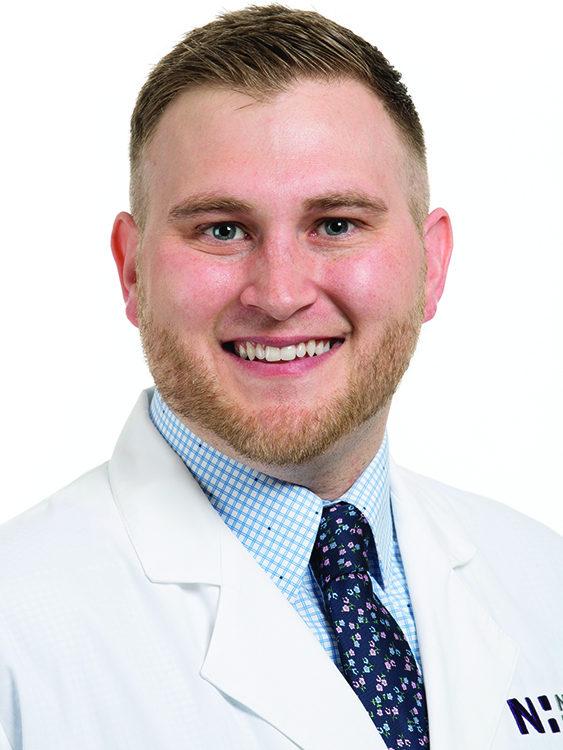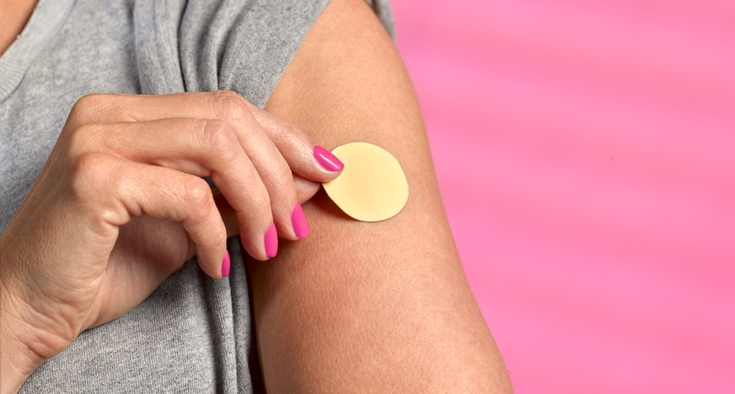In theory, “detoxing” the body sounds good: If there are toxins in there, I want them out. Especially if I’ll think more clearly, digest food better, feel more energetic, lose weight and glow like a hundred-watt bulb from the inside out.
At least, these are some of the claims I’ve heard about juice fasts, colon cleanses, liver detoxes, parasite cleanses, heavy metal detoxes, foot pads, saunas and other “cleanse” regimens. Should I believe them?

Nope, said Dr. Brian Ingold, a doctor of osteopathic medicine at Novant Health Arboretum Family & Sports Medicine in Charlotte. Why? There’s little science to back these claims up, Ingold said, and while we can take steps to minimize our exposure to toxins, we don’t need expensive supplements to help our body detox — it does that all on its own.*
And if you want that mental clarity, gut-health and luminescence? Well, keep reading.
On the path to better health? We can help.
How do toxins get in our bodies to begin with?
Our body processes the things we eat, drink, breathe in and put on our skin. Sometimes, those include toxins. For example, cigarette smoke, pollution, mold, chemicals in household products, mercury and pesticides are all toxins you may be exposed to. Our body also produces some toxins as part of the chemical reactions that keep us alive.
Why don’t we need to detox, then?
Thank your lymphatic system: A group of organs, tissues, and vessels that works in the background with your liver, kidneys, skin and lungs to clean out and remove all of the toxins you’re worried about. And without the help of detox regimens you see on social media.
“Bottom line: Our body does so much of its detoxing on its own,” Ingold said. “There’s a reason we are still here on this earth. We didn't have TikTok two generations ago and we survived.”
Medicine has advanced over the last century, Ingold said, and we know how to live healthier and longer lives. But that doesn’t require unnatural interventions like cleanses.
But what about all the claims of detox benefits?
Often, these claims are false advertising — not science.
“If I got some advertisement on something that was supposed to make my car run more efficiently and I would only have to get an oil change once every 100,000 miles, the very first thing I would do is discuss it with a mechanic,” Ingold said. “I’d ask, ‘Does this make sense to you? Is this true or not?’ That’s the conversation you need to have with your physician.”
Ingold said our constant access to news and social media can make health decisions feel complicated. “You have instant access to the world's experts at any given time, which we’ve never really had in human history. There's a lot of terrific stuff out there,” Ingold said. “But there’s also made-up stuff. Part of our job as physicians is to funnel.”
What does that mean?
Pointless ‘cleanse,’ or have some fun?
Think about this: The typical “cleanse” requires days of misery, not to mention money spent on products and treatments. What if you saved that money, treated yourself to something fun you’ve been wanting, and just lived a healthier life? You’d have the health gains you want and something to show for it.
Many trends are unnecessary — or even dangerous, Ingold said.
Other times, a diet, supplement or practice may have a medical benefit for a certain group of people. "Then people try to apply it broadly — even though that’s not where the evidence is,” Ingold said. For example, a gluten-free diet helps people with Celiac disease or a sensitivity to gluten, but there’s no reason most of us need to “detox” from gluten.
So he recommends: Before trying a new health trend or practice, talk to your clinician to see if it’s based on evidence — and if it’s right for you.
But also, think critically, Ingold said. “Most people know this intuitively — they see it online and they're like, ‘OK, this sounds a little too good to be true. All I have to do is this one thing and it will fix these 10 downstream things?’ They know it in their gut that it’s wrong.”
But I want a healthy gut, liver and brain. And I want to feel good.
Then focus on the basics: Sleep, nutrition, exercise and stress management, Ingold said.
For a healthy gut, drink enough water and eat a varied, whole-food, high fiber diet with plenty of fresh fruit and vegetables: “You’ll have all the pre- and probiotics everyone’s trying from all those other things, and your body is gonna clean itself out without any issues.”
For overall health, incorporate as many one-ingredient foods as possible: For example, the only ingredient in a banana is a banana. Otherwise, pick nutrient-dense foods, minimize processed foods, and choose lean protein over proteins high in saturated fat.
Often, people will significantly reduce sugar for a short period of time, calling it a “sugar detox.” Ingold said this is not medically necessary. Instead, he recommends attempting to limit foods with added sugars as much as possible within your daily diet. The key here is the word added sugars.
"Naturally occurring sugars in whole fruits and vegetables are not going to be the sugars causing metabolic dysfunction,” Ingold said. “None of us has ever met a person with metabolic disease solely because he or she ate too many blueberries.” However, added sugars and sugars from non-whole foods can increase our risk for health issues, he said, making it important to make “quality, long-lasting changes to your diet to improve nutrient density.”
Manage stress as much as possible; Ingold recommends practicing mindfulness meditation.
Get to a healthy weight. Exercise most days of the week, including strength training in your routine. And sleep at least seven hours a night.
If you’re worried about toxins, avoid smoking and secondhand smoke. Limit alcohol to no more than one drink per day for women and two for men, with a drink defined as 12 ounces of beer, 5 ounces of wine, or 1.5 ounces of distilled spirits. And be conscientious about the products you use in your house and on your body.
This sounds like a lot of work.
A healthy lifestyle takes effort and can be time consuming, and that’s why quick fixes sound appealing. A three-day cleanse to remove toxins feels easier than changing our lifestyle for good.
But the lifestyle changes yield the most results, Ingold said.
“Patients come in asking, ‘Do I need to do a liver detox?’ I’m like, ‘No, you need to stop eating processed food eight times a week.’ We need to work on the foundational things first,” Ingold said. “I don’t want us to step over dollars to pick up dimes.”
Here’s why: these foundational things won’t just make you healthier. They’ll make you feel better.
“If your diet is very poor and you’re not doing the things you need to do from a self-care standpoint with the basics, you're probably going to have more inflammation,” Ingold said. That can mean brain fog, joint pain, gastrointestinal issues — all the things a detox tries to fix.
In contrast: “If these foundational things are dialed in, you’ll feel better, live longer and live better.”
* This article talks about commercial detoxes sold direct-to-consumer and performed without clinical supervision. Sometimes, true medical detoxifications are necessary — such as for substance withdrawal and for true heavy-metal poisoning as confirmed by clinical labs. These types of detoxifications have their place in patient care, but should only be done under strict physician supervision.











